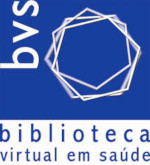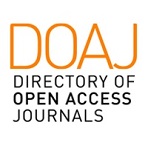Dialogue between Moreno and Bronfenbrenner in musical groups’s context
Keywords:
psycodrama, music, human development, groupsAbstract
This article aims at a debate on possible dialogues between Moreno’s ideas and Bronfenbrenner’s bioecological theory based on the discussion of interaction processes and its influences for human development. Concepts such as proximal processes, ecological transitions and group relations are worked on using as context the musical groups. This interlocution can contribute to the knowledge of the authors and contexts of musical groups and its possible contributions to human development.
Downloads
References
Ávila, D. C. (2009). Das (im)possibilidades de uma psicologia musical. TransFormações em Psicologia (On-line), 2(2), 81-99. Retirado de http://pepsic.bvsalud.org/pdf/transpsi/v2n2/a05.pdf
Boris, G. D. J. B. (2014). Elementos para uma história da psicoterapia de grupo. Revista da Abordagem Gestáltica, 20(2), 206-212. Retirado de http://pepsic.bvsalud.org/scielo.php?script=sci_arttext&pid=S1809-68672014000200008
Brito, R. C., & Koller, S. H. (1999). Desenvolvimento humano e redes de apoio social e afetivo. In A. M. Carvalho (Org.), O mundo social da criança: natureza e cultura em ação (pp. 115-126). São Paulo: Casa do Psicólogo.
Bronfenbrenner, U. (1943). A constant frame of reference for sociometric research. Sociometry, 6(4), 363-397. doi: 10.2307/2785218
Bronfenbrenner, U. (1944). A constant frame of reference for sociometric research: Part II. Experiment and inference. Sociometry, 7(1), 40-75. doi: 10.2307/2785536
Bronfenbrenner, U. (1979). The ecology of human development: Experiments by nature and design. Cambridge, MA: Harvard University Press.
Bronfenbrenner, U. (1995). The bioecological model from a life course perspective: Reflections of a participant observer. In P. Moen, G. H. Elder, Jr, & K. Luscher (Eds.), Examining lives in context: Perspectives on the ecology of human development (pp. 599-618). Washington, DC: American Psychological Association.
Bronfenbrenner, U. (2001a). Growning chaos in the lives of children, youth, and families: How can we turn it around? In J.C. Westman (Ed.), Parenthood in America (pp. 197-210). Madison, WI: University of Wisconsins Press.
Bronfenbrenner, U. (2001b). The bioecological theory of human development. In N. J. Smelser & P. B. Baltes (Eds.), International encyclopedia of the social and behavioral sciences (Vol. 10, pp. 6.963-6.970). New York: Elsevier.
Bronfrenbrenner, U. (2011). Bioecologia do Desenvolvimento Humano: tornando os seres humanos mais humanos. Porto Alegre: Artmed. (Trabalho original publicado em 2005).
Bronfenbrenner, U., McClelland, P., Wethington, E., Moen, P., & Ceci, S. J. (1996). The State of americans: This generation and the next. New York: Free Press.
Bronfrenbrenner, U., & Morris, P. A (1998). The ecology of developmental processes. In W. Damon, & R. M. Lerner (Eds.). Handbook of child psychology: Theoretical models of human development (Vol. 1, 5th ed., pp. 993-1028). New York: John Wiley.
Bronfenbrenner, U., & Morris, P. (2006). The bioecological model of human development. In W. Damon, & R. M. Lerner (Eds.), Handbook of child psychology: Theoretical models of human development (Vol. 1, 6th ed., pp. 793-828). Hoboken, NJ: Wiley.
Calvente, C. F. (2014). Aportes para una Psicopatología Psicodramática. Revista Brasileira de Psicodrama, 22(2), 46-53. Retirado de http://pepsic.bvsalud.org/scielo.php?script=sci_arttext&pid=S0104-53932014000200006&lng=pt&nrm=iso&tlng=es
Ceci, S. J. (2006). Urie Bronfenbrenner (1917–2005): Obituary. American Psychologist, 61(2), 173-174. doi: 10.1037/0003-066X.61.2.173
Joly, M. C. L., & Joly, I. Z. L. (2011). Práticas musicais coletivas: um olhar para a convivência em uma orquestra comunitária. Revista da Abem, 26, 79-91. Retirado de http://www.abemeducacaomusical.com.br/revista_abem/ed26/revista26_artigo7.pdf
Mattos, S. C. (2015). Narrativas, música e resiliência. In Anais do XI Simpósio Internacional de Cognição e Artes Musicais. Pirenópolis, GO.
Moreno, J. L. (1978). Who shall survive? Foundations of Sociometry, Group Psychotherapy and Sociodrama. New York: Beacon House Inc. (Trabalho original publicado em 1934).
Moreno J. L. (2006). Psicodrama (10a. ed.). São Paulo: Cultrix. (Trabalho original publicado em 1946).
Moreno, J. L. (2012). O teatro da espontaneidade. São Paulo: Ágora.
O’Nell, S. A. (2012). Becaming a music learner: toward a theory of transformative music engajament. In G. E. McPherson, & G. F. Welch (Eds.). The Oxford handbook of music education (Vol. 1, pp. 163-186). New York: Oxford University Press.
Rodrigues, C. A. M., & Rosin, S. M (2011). A importância do ensino de música para o desenvolvimento infantil. Retirado em 4 de agosto de 2015 de: http://www.academia.edu/download/39428412/a_importancia_de_ensinar_musica.pdf.fortemente









1.jpg)




